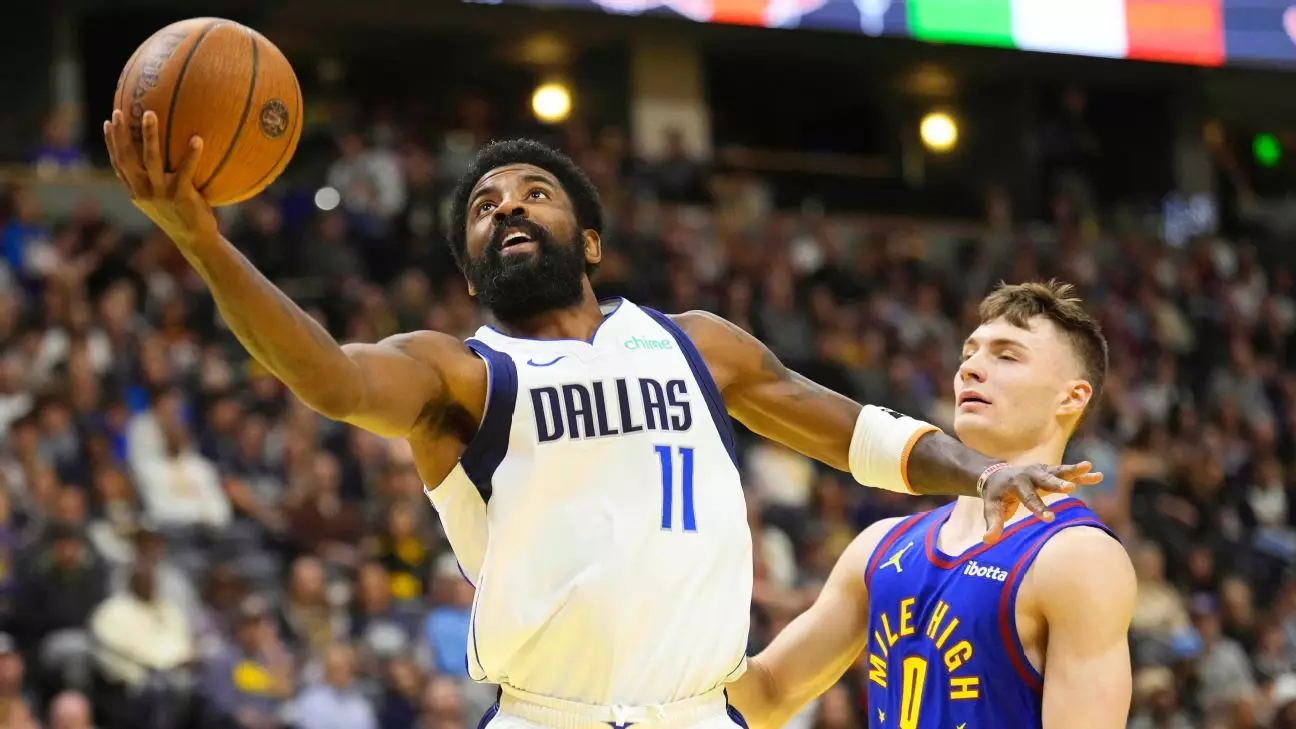Kyrie Irving’s recent return to the court for the Dallas Mavericks was far from triumphant, as he faced significant challenges following a five-game absence due to a bulging disk in his lower back. Despite his determination to contribute to the team, Irving’s performance highlighted just how much his injury has impacted him—scoring only 11 points with a dismal shooting percentage of 22.2% against the Denver Nuggets. The Mavericks suffered a heavy defeat, losing 118-99, showcasing not only the difficulties Irving faced but also the overall struggle of the team in his absence.
Irving disclosed that he had never previously encountered back issues, making the diagnosis of a bulging disk particularly burdensome for him. It’s a condition that can range in severity but often leads to pain radiating down the legs and discomfort that can hinder an athlete’s ability to perform at optimum levels. While the Mavericks had classified his injury as a lumbar sprain, Irving shared that he has sought input from various medical professionals, including teammates who have navigated similar health concerns. This anecdote underscores the significant mental and physical toll such injuries can take on elite athletes—an impact that resonates beyond the court.
The Mavericks’ situation worsened when center Dereck Lively II sustained a right ankle sprain during the game. With both Luka Doncic sidelined since Christmas due to a calf strain and Irving managing his back injury, the team’s depth and resilience are being tested. This situation highlights the precarious balance NBA teams must navigate when key players are hampered by injuries, particularly in a season where playoff aspirations are on the line.
Irving’s account of the pain from his bulging disk adds a human element to the athlete persona, revealing that, at times, the physical pain was so overwhelming it obstructed activities like meditation, which he often uses to cope with stress. His reliance on medication to mitigate the discomfort raises questions about the long-term effects of playing through such intense pain. As he navigates his recovery, Irving emphasizes the importance of mindfulness in how he manages his condition while remaining committed to supporting his teammates.
Despite the daunting challenges posed by his back injury, Irving has made it clear that he intends to play in the subsequent back-to-back game against the New Orleans Pelicans. His determination to take the court reflects the resilient mindset of a competitor, yet it also poses the risk of exacerbating his injury. The Mavericks’ situation is precarious as they seek to regroup and find their rhythm, and Irving’s health will be a pivotal factor in their successes or failures in the coming games. As the team navigates through adversity, all eyes will be on how Irving manages his condition while attempting to lead Dallas back into contention.


Leave a Reply